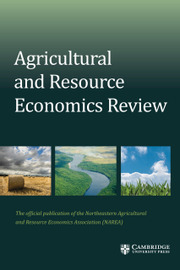No CrossRef data available.
Article contents
Economics and Ecosystem Management: Discussion
Published online by Cambridge University Press: 15 September 2016
Extract
The transitional period in the development of a new field is often characterized by competing articulations, recourse to philosophy, and a debate over fundamentals (Kuhn 1970). As exemplified by numerous articles and books providing alternative definitions in the recent academic and policy literature, it is clear that the emerging field of ecosystem management is still struggling to identify a shared paradigm. Thus it is not a surprise that, in surveying the ecosystem management literature, Swallow (1996, p. 83) finds this field to be “one of the vaguest ideas or mandates of the decade.” A critical concern is that this debate over definitions may not be resolved in the foreseeable future, inhibiting policy-relevant research progress in this important area.
- Type
- Invited Presentations
- Information
- Copyright
- Copyright © 1996 Northeastern Agricultural and Resource Economics Association




